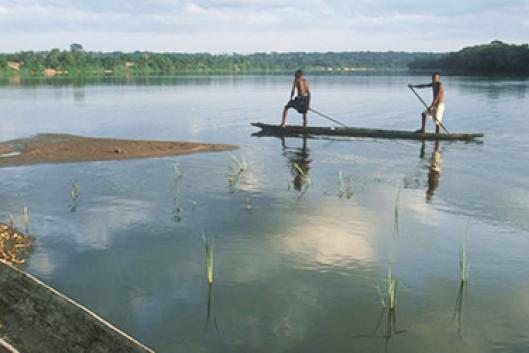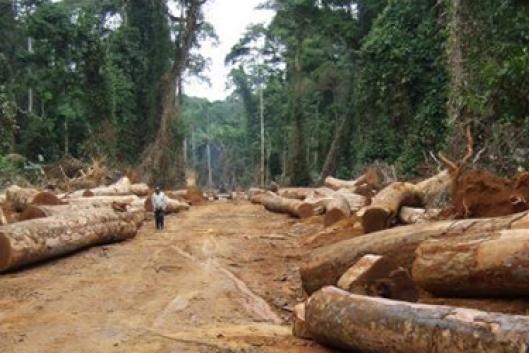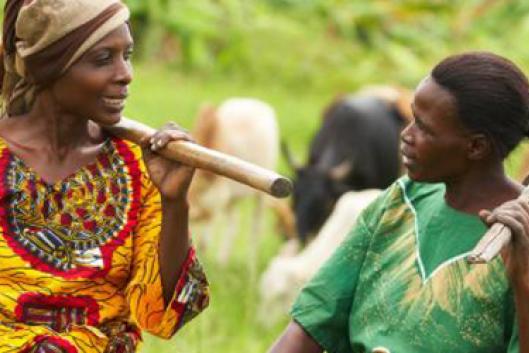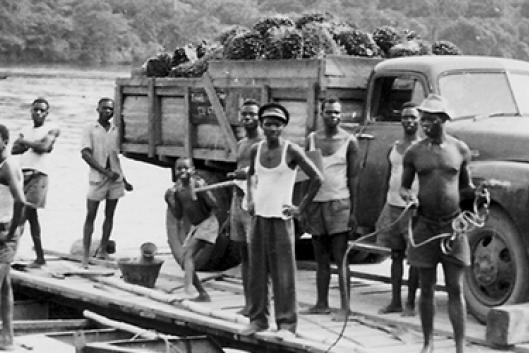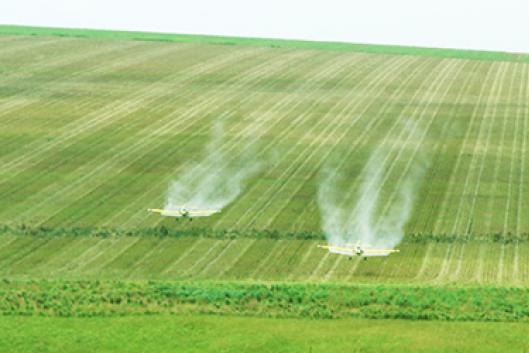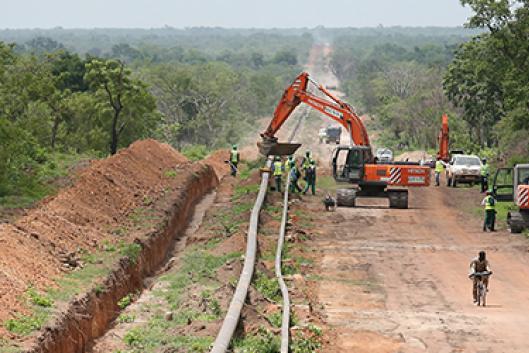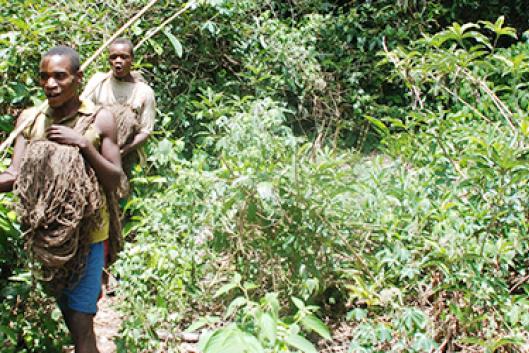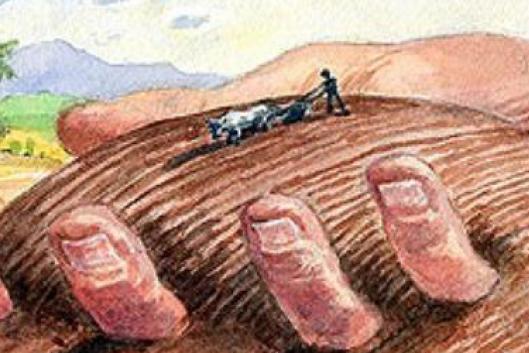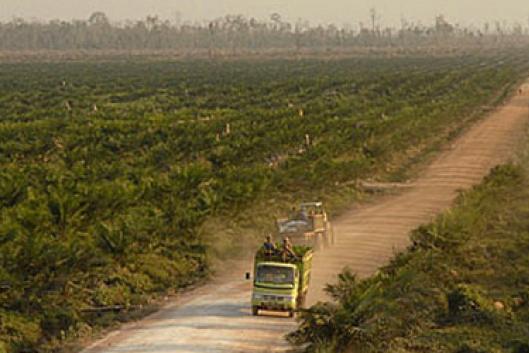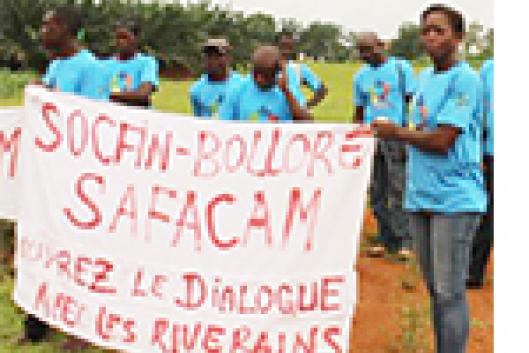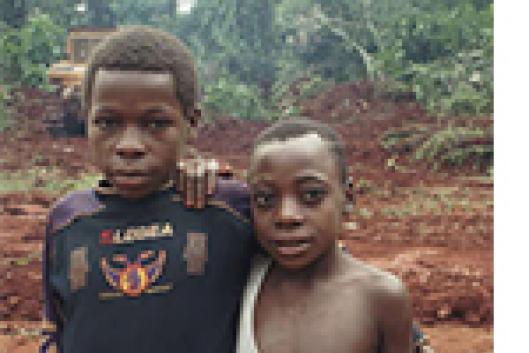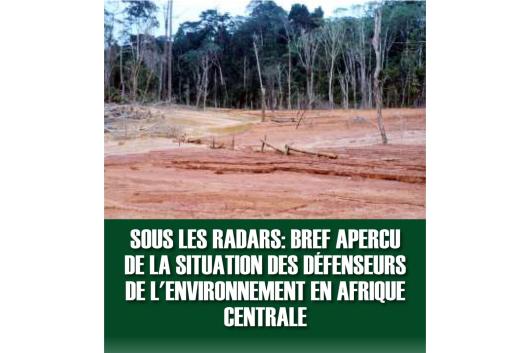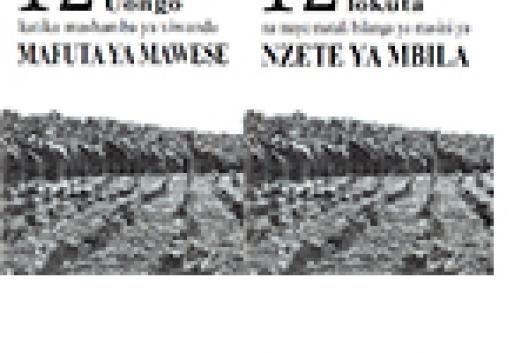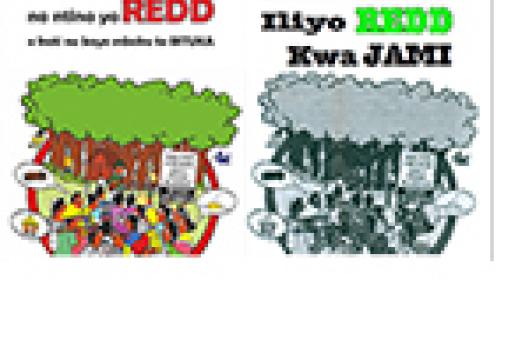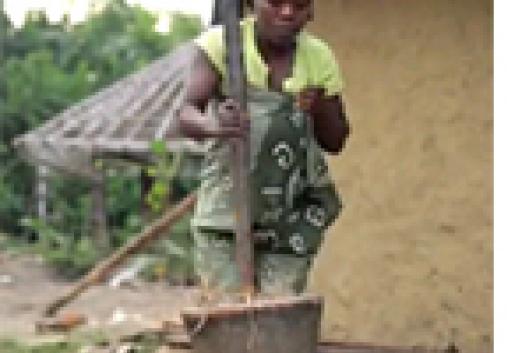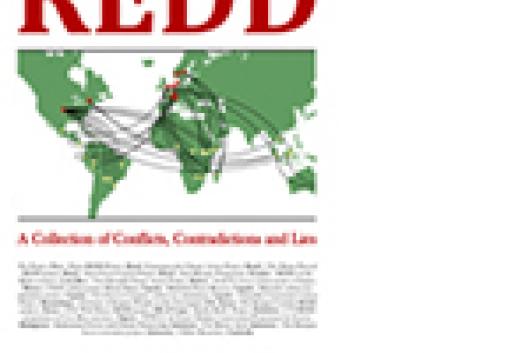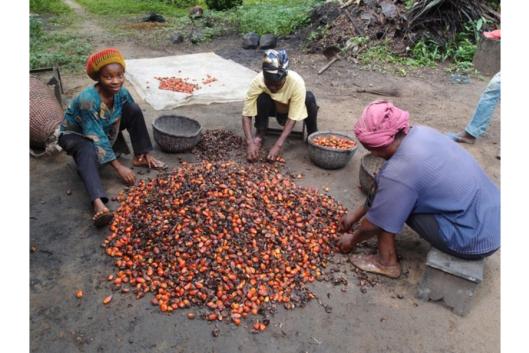The Congo Basin in Central Africa contains the second largest forest in the world. Its extensive territory is shared by six countries: the Democratic Republic of Congo, the Republic of Congo, Gabon, Cameroon, the Central African Republic, and Equatorial Guinea. With this Bulletin we seek to explore in depth and report on the intense land-grabbing that people are confronted with and resist in this region—a forested area that houses and provides the livelihood and sustenance for around 30 million people.
Bulletin Issue 224 - May/June 2016
What is driving land grabbing: a critical overview across the Congo basin region
WRM Bulletin
224
May/June 2016
OUR VIEWPOINT
WHAT IS DRIVING LAND GRABBING: A CRITICAL OVERVIEW ACROSS THE CONGO BASIN REGION
-
13 July 2016The agricultural force on the continent In Cameroon as in many African countries, women daily endure practices that could be considered discriminatory in various areas of society, and especially related to land ownership. “In our family, a woman is a good, like a house or a plantation,” said Léon Mba, leader of the Pamue Congress in 1949. (1)
-
13 July 2016Oil palms are native to the forests of Central and West Africa and inseparable from the region’s peoples and their cultures. Communities in this part of the world have relied on oil palms for thousands of years— as a source of food, textiles, medicines and construction materials. Most of the world’s oil palms, however, are cultivated far away, in Southeast Asia, and not in forested palm groves, but on massive monoculture plantations where tropical forests used to stand. These oil palm plantations are a product of Europe’s brutal colonial legacy.
-
13 July 2016The village of Yalifombo, on the banks of the Congo River in the Democratic Republic of the Congo (DRC), was an essentially agricultural community. In this village it is possible to observe how the local economy, which revolved around traditional cultivation of oil palm, has collapsed from the dramatic increase in industrial plantations. Throughout the Congo Basin sub-region, whether in Mundemba (Cameroon) or Mboma (Gabon), we see agribusiness increasingly competing with local agricultural economies. The system that certain public policies promote today is destroying systems that have been beneficial to peasant communities for a long time.
-
TRICKS AND DECEPTION THAT PROMOTE LAND GRABBING
-
13 July 2016From January 28-31, 2016, in Mundemba in southwest Cameroon, two international meetings took place on the expansion of oil palm cultivation and the global oil palm industry, in particular in Africa. The first meeting was a discussion workshop among women focused on the impacts of oil palm monoculture on women and their families, as well as current and possible strategies they could develop to defend their interests. The second gathering, called a “global workshop,” examined the strategies and tactics that companies use to increase their industrial oil palm plantations, and how communities react to defend their lands.
ACTION ALERTS
-
13 July 2016Socapalm and Safacam are two companies controlled by Socfin, a multinational agribusiness specialized in the cultivation of oil palm and rubber. The group has financial and operating companies in Belgium, Luxembourg and Switzerland, which manage plantations in a dozen African and Asian companies. The group's aggressive expansion policy has led to land-grabbing, causing serious impacts on local communities' living conditions. This has sparked many reactions from directly affected community members, as well as international NGOs.
-
13 July 2016In southeast Cameroon, Baka Indigenous Peoples and their neighbours continue to be illegally evicted in the name of conservation, most recently for a game reserve set up in 2015 with the support of the World Wildlife Fund (WWF). A video made by Survival International shows the testimonies of Baka men and women revealing the violence they have suffered at the hands of anti-poaching militias backed by WWF. This debunks WWF’s claims that the situation seems to have improved. Other victims have written open letters to protest at their unfair treatment. “They beat us with machetes here in the village… We want those involved to stop this… The forest is all we know.
RECOMMENDED
-
13 July 2016This report aims to draw attention to violations and threats that environmental justice defenders in Central Africa are facing, specifically in the Congo Basin. The report is based on two studies. The first concerns the legal framework for the protection of environmental justice advocates in Central Africa. The second focuses on the inclusion of communities' rights in Central African countries. Read the report in French.
-
13 July 2016This booklet produced by WRM aims at strengthening the struggles of all those who are opposing large-scale oil palm plantations in the global South. After expanding in Indonesia and Malaysia for decades, large-scale oil palm plantations have more recently been expanding in rural areas in countries in Africa and Latin America. These expansions of industrial oil palm plantations once again jeopardize the way of life of rural communities as well as their proposals for how land be used in ways that improve their well-being.
-
13 July 2016The main goal of this booklet is to inform communities about the serious problems that a REDD project can cause for the communities involved. WRM has visited a number of these communities over the past years. All of them, without exception, have a lot to say about REDD. This is what motivated us to produce this booklet: to share their experiences with other communities who also run the risk of being affected by a REDD project. The booklet is now also available in Swahili and Lingala
-
13 July 2016The WRM, together with GRAIN, prepared a collection of videos on the impacts of large-scale industrial oil palm plantations. The videos have been produced by several partners from around the world working against expansion of industrial oil palm plantations and they describe the impacts that local communities suffer when the expansion takes place on their territories. The collection is aimed at providing information for grassroots organizations, movements and activists, particularly in Africa –where the expansion is more recent and taking place at alarming rates.Access the videos here:
-
13 July 2016Two publications show how REDD undermines forest peoples’ rights, fails to address deforestation and puts the blame for deforestation and emissions on peasant farming practices while undermining local food systems.
-
13 July 2016A video produced by GRAIN shows how rural women in West Africa are working to protect traditional palm oil production in the face of the destructive expansion of industrial oil palm plantations. Watch the video here.
